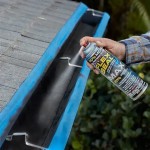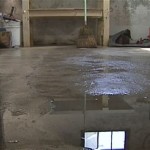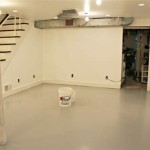What Is Better For Basement Vinyl Or Laminate: A Comprehensive Guide
When renovating your basement, choosing the right flooring is crucial to enhance its aesthetic appeal and functionality. Two popular options are vinyl and laminate, each offering unique advantages and drawbacks. This guide will delve into the essential aspects of these materials to help you make an informed decision.
Durability
Both vinyl and laminate are durable flooring options, but they differ in their resistance to wear and tear. Vinyl is known for its exceptional waterproofness, making it ideal for basements prone to moisture issues. It can withstand spills, pet urine, and heavy foot traffic without staining or warping. Laminate, on the other hand, is more susceptible to water damage and can swell if exposed to excessive moisture. However, it is scratch-resistant and can withstand wear from furniture and shoes.
Moisture Resistance
As mentioned earlier, vinyl excels in moisture resistance. Its solid core prevents water from seeping through, making it the preferred choice for damp basements. Laminate, however, has a fiberboard core that can absorb moisture, leading to swelling and damage. If you are considering laminate for a basement, ensure that it is moisture-resistant or consider installing a vapor barrier beneath the flooring.
Comfort and Sound Absorption
Vinyl is typically softer and more comfortable underfoot than laminate. Its cushioned backing provides a warm and inviting feel, reducing foot fatigue and enhancing comfort while walking or standing. Additionally, vinyl has excellent sound absorption properties, which can help reduce noise levels in your basement.
Style and Versatility
Both vinyl and laminate offer a wide range of styles and designs to complement any basement decor. Vinyl comes in various textures, including wood, stone, and tile, allowing you to create a customized look. Laminate also mimics the appearance of natural materials like hardwood or ceramic tile, providing a stylish and cost-effective alternative to real wood or stone.
Installation and Maintenance
Vinyl flooring is relatively easy to install and can be done as a DIY project with minimal experience. It is self-adhesive and can be placed over most existing flooring types. Laminate flooring requires more advanced installation techniques, including underlayment and locking mechanisms. Maintenance for both vinyl and laminate is straightforward, involving regular sweeping and occasional mopping with a damp cloth.
Cost
The cost of vinyl and laminate flooring can vary depending on factors like quality, style, and installation method. Generally, vinyl is more affordable than laminate, making it a budget-friendly option for basement renovations. However, high-end vinyl flooring can be comparable in price to laminate.
Conclusion
Choosing between vinyl and laminate flooring for your basement depends on your specific needs and preferences. If moisture resistance, comfort, and ease of installation are your priorities, vinyl is an excellent choice. If you seek a stylish, scratch-resistant flooring option that can withstand heavy wear, laminate may be a better fit. By carefully considering the factors outlined in this guide, you can make an informed decision that will enhance the functionality and aesthetic appeal of your basement for years to come.

What Is The Best Flooring For Basements Get Pros And Cons

The Best Flooring Options For Your Basement

Lvt Vs Carpet What S Better For A Basement

Laminate Flooring Vs Vinyl Plank Which Is Better

Lvt Vs Carpet What S Better For A Basement
Pros And Cons Of Luxury Vinyl Flooring In Basements

Lvt Vs Carpet What S Better For A Basement

How To Choose Flooring For Your Basement Renovation Week 3 Of The One Room Challenge Willow Bloom Home

Basement Flooring Options Reallycheapfloors America S Cheapest Hardwood

The Best Basement Flooring Options Inc








